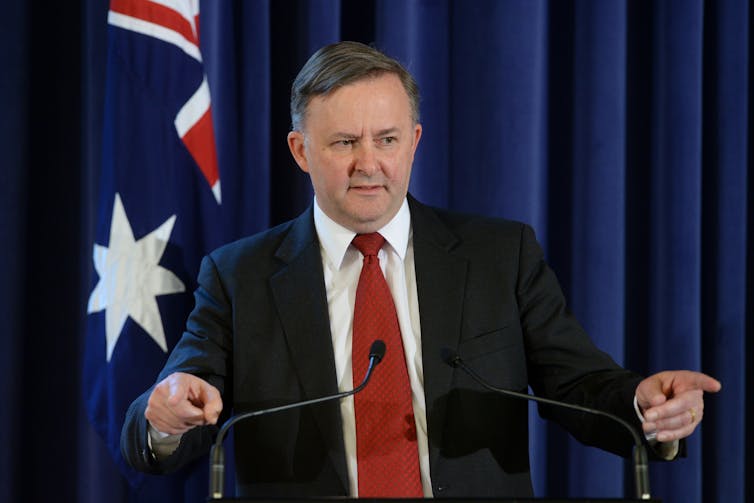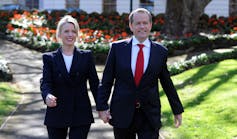
Labor has set out on its great experiment in party democracy. Bill Shorten and Anthony Albanese swear to run a civilised contest for the party’s leadership. Maybe. It will certainly be an interesting one, with likely debates before party audiences.
The ALP rank and file will love it. The party has been talking about the need for more internal democracy since the 1960s, with occasional progress but more often successful resistance by factional chiefs. Now, out of Kevin Rudd’s second coming, suddenly members have got a foot in the front door.
If Rudd hadn’t been deposed in 2010 and restored in 2013 this wouldn’t be happening. Rudd had self-interest in mind. When he brought forward the party reforms he thought he could win the election, and was determined he’d never be ambushed again. Selling his idea he focused on voters getting the prime minister they elected; at the heart of his proposal was setting a bar so high that no PM could be deposed in a coup. Along with that came giving the party grass roots a 50% say (caucus having the other 50%) in choosing the leader.
Critics make various points against this system. Firstly, that it takes a long time – a month. That seems a minor matter. It’s the start of the term. The ALP has an interim leader, Chris Bowen, and the former ministers will continue in their jobs as “shadows” until there is a new frontbench.
Secondly, critics say a leader who wins by securing the rank and file but not the caucus could be in an awkward position, having to deal with a caucus while having only minority support there. How this worked out in practice would depend on the winning and losing margins in the two votes, and, most important, how successfully the leader performed and stamped authority on the job and party.

The most concerning aspect of the new system is the risk it mightn’t produce the best person for the job. Of course “best” is a subjective concept. What we are talking about here is the person with most chance of taking Labor to victory.
The ALP membership, particularly since it is so small, is likely to be less attuned to the general public’s thinking than the caucus will be.
And if a bad choice is made, the chance of change before the next election is slim - under the new rules it takes a 60% vote in caucus to spill an opposition leader’s position.
Obviously Labor’s revolving door of leaders has been bad, and appalling when prime ministers are being flicked. But making an opposition leader too secure could lock in failure.
Bill Shorten and Anthony Albanese are both quality candidates. Shorten is doing what everyone has expected him one day to do. But Albanese? He’s been senior and well known throughout Labor’s years in office. So how come he slipped up that greasy poll with people hardly noticing, to be deputy PM by the time the government fell? How was it, when talk was hot of getting anybody but Rudd as a possible alternative to Gillard, Albanese was not mentioned?
Being from the left, Albanese would never have had much chance in the old caucus-only ballot system. (Greg Combet, now out of parliament, admittedly used to be in the lists, but he would have been disadvantaged too.)
Opening the vote to the rank and file has made Albanese suddenly extremely competitive; he’s been further helped by emerging from government with a good reputation.
Shorten could do nothing else but run. On Sunday he indicated he didn’t want to face a contest but when it became clear he probably couldn’t avoid one if he wanted the job, he announced he was a candidate. Squibbing would have been a black mark against his political character and, after his part in two leadership coups, he carries enough of those.
Albanese genuinely agonised. A bit like Tony Abbott in earlier years, he hadn’t thought the leadership was attainable (the difference is that Abbott dreamed of it, while it appears to have been off Albanese’s mental radar). So he had to get into the right mindset. Once he was there, the possibility of a glittering prize would be hard to resist – even though he is exhausted after a hellish few years and opposition leader is often said to be the hardest job of all.
Anyway, knowing he has a lot of rank and file support would have made it hard for him to turn away. To have done so would have seemed like betraying those in the loyal base, something he wouldn’t do – which is why they love him.
